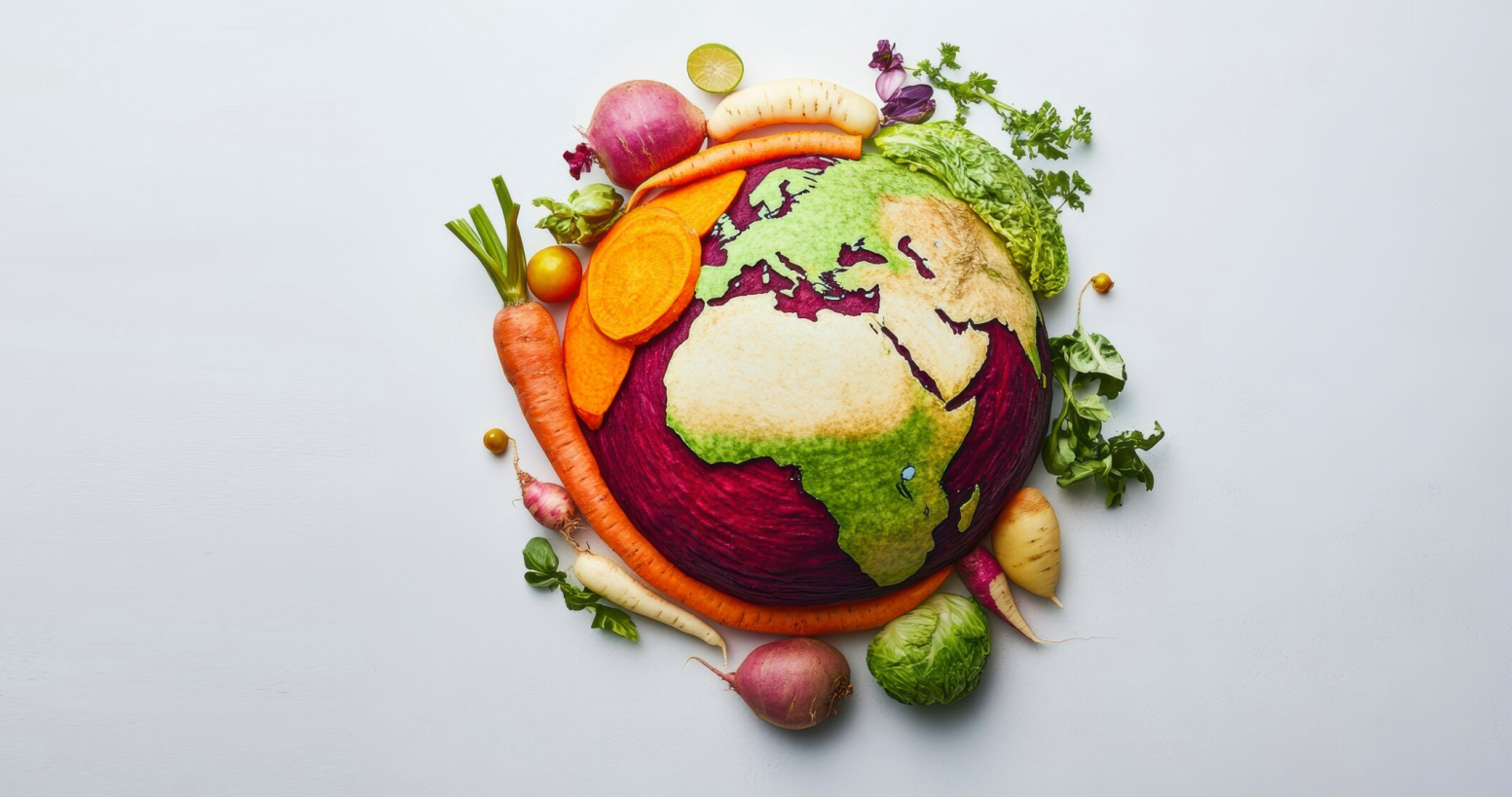Strategic Partners’ Perspectives
July
FOOD SECURITY IS ONE OF THE GREATEST CHALLENGES
confronting humanity this century. According to the United Nations, by 2050 the global population is projected to reach almost 10 billion individuals. This population growth will require an increased demand for nutritious food, sourced from sustainable food systems. Hence, food security is not merely about meeting present needs but also about ensuring the long- term resilience of agricultural systems. Evidence of this is that food companies are increasingly leaning on regenerative agriculture. According to BloombergNEF, the area allocated to regenerative agriculture can reach up to 800,000 hectares per company, totaling up to $16 million of investment. Thus, companies that provide the world with agricultural commodities have a crucial role to play in supporting their supply chains, as they transform towards resilient, sustainable and efficient productive systems.
Animal protein has an essential role in food security and providing nutritious diets to people around the
world.1 It is estimated that demand for meat in Asia
will reach 221 million tonnes by 2050, representing an increase of 77% compared to 2010.2 South America holds significant potential for sustainable livestock production. The region benefits from abundant rainfall, which reduces the need for irrigation and conserves water resources; and pasture-raised cattle are supported by natural grazing systems, reducing the negative environmental impacts of livestock farming.
An example of a sustainable tropical productive system is the integration of livestock, crops and forests within the same area. These systems involve rotating components within the same area bringing mutual benefits. For instance, trees provide shade and windbreaks for livestock, improving animal welfare and productivity. In return, livestock contribute manure, which enhances soil fertility for crops and trees. Additionally, the rotation of crops and pastures breaks pest and disease cycles and adds nutrients to soil, further benefiting each component of the system. This synergy maximizes productive land use while improving animal welfare, soil health and sequestering carbon. In Brazil, 17 million hectares are currently managed under such integrated systems,3 an area almost equivalent to Portugal and Hungary combined. Conservation agriculture practices such as no-till farming, cover cropping and crop rotation are increasingly used throughout South America, reducing the need for chemical inputs, lowering production costs and increasing productivity, with the best regenerative livestock systems increasing farm profitability by almost 300%, according to Exagro.
Additionally, the livestock sector is an almost zero waste industry, able to harness the potential of by-products, minimizing waste and unlocking opportunities for renewable energy production. For example, transforming animal waste into biofuel turns a potential environmental liability into a valuable asset. Advanced biofuel production processes, developed by Brazilian research institutions, extract energy from organic waste materials. Sustainable aviation fuel, derived from these processes, has a much lower carbon footprint than conventional jet fuel. The European Union has committed to replacing 70% of conventional fuel with this sustainable biofuel by 2050. This closed-loop approach to waste management contributes to the broader transition towards a low-carbon economy. And as this transition happens, carbon-intensive energy sources are being replaced with renewables.
However, we cannot transition away from food. Therefore, low-carbon emission food systems must be incentivized, and the nature-based carbon credit market is emerging as a new business model to support this transformation. South America enjoys a great comparative advantage as the continent with the most potential to sequester carbon through nature-based solutions, including on productive land. Carbon projects in the region can support the recovery of degraded productive areas, creating myriad socioenvironmental co-benefits. These projects increase productivity and rural income and reduce the pressure to expand productive land, while storing carbon in soil.
Soil carbon sequestration is a promising strategy in combating climate change. Many scientists point to soil carbon as a critical component of climate mitigation efforts. Studies show that an increase of just 1% by mass in soil carbon across agricultural soil would sequester 311 gigatonnes of CO2e.4 To put this into perspective, total global greenhouse gas emissions in 2023 were 35.8 giga tonnes of CO2e.5 Brazil alone has the potential to store up to 1billion tonnes of CO2 annually through landscape restoration.6 This illustrates the vast potential of soil carbon sequestration as a climate solution.
The development of high-quality carbon credits in line with international standards creates financial incentives for the large-scale implementation of sustainable agricultural practices. By participating in carbon credit programs, rural producers can generate additional income while contributing to climate mitigation. These programs require rigorous monitoring and verification to ensure that the claimed emission reductions are real, measurable and permanent. The revenue generated from carbon credits can be reinvested in further sustainability initiatives, creating a positive feedback loop that drives continuous improvement.

Companies involved in the agricultural commodities supply chain have a key role in supporting the transition to sustainable food systems. By investing in sustainable practices and technologies, these companies can drive positive change throughout the supply chain and foster collaboration among stakeholders, creating a more resilient and sustainable agricultural sector.
The integration of sustainable practices in agricultural production is essential for addressing the food security challenge and mitigating climate change. South America’s favorable climatic conditions, low dependence on irrigation, and advances in sustainable technologies position the region as a leader in sustainable cattle production. Integrated livestock, crop and forest systems, along with the utilization of by-products for renewable energy, exemplify the potential for creating efficient and resilient agricultural systems. The implementation at scale of sustainable agricultural practices not only addresses environmental concerns, but also promotes socioeconomic development. Live stock production is a cornerstone of South America’s agricultural economy, playing a vital role in employ ment, income generation and economic development across the continent. The nature-based carbon credit market provides a promising avenue for incentivizing low-carbon emission productive systems. By embracing sustainable practices and technologies, the agricultural sector can provide nutritious food to a growing global population, while safeguarding the environment and enhancing socioeconomic development.

ABOUT THE AUTHOR
FERNANDO QUEIROZ has been president of the holding since 2007, having led Minerva Foods’ expansion and geographic diversification strategy. Today, Minerva Foods, a human nutrition company and main brand of the holding, is the leader in beef exports in South America, selling products to more than 100 countries and industrial units in Brazil, Argentina, Colombia, Paraguay and Uruguay, in addition to having factories specializing in sheep in Australia.
Fernando also led the creation of the holding’s related businesses, including Minerva Energy, Minerva Biodiesel, Minerva Ingredients, Minerva Casings, Minerva Leather and MyCarbon, a subsidiary for origination and commercialization of carbon credits.
The group employs more than 23,000 employees and supports around 15,000 producers worldwide.
With a degree in Business Administration from Fundação Getúlio Vargas (FGV) and specialized in Owner President Management at Harvard University, Fernando has been working at Minerva Foods since 1992, the year he took over as the company’s Commercial Director.
In addition to Minerva, Fernando also worked as a Trader at Cargill Agrícola and as an intern at Cotia Tradings.
SOURCES
BEAL, T., GARDNER, C. D., HERRERO, M.,
IANNOTTI, L . L . , MERBOLD, L . , NORDHAGEN, S., & MOTTET, A. ( 2023 ) . FRIEND OR FOE? THE ROLE OF ANIMAL-SOURCE FOODS IN HEALTHY AND
ENVIRONMENTALLY SUSTAINABLE DIETS. THE JOURNAL OF NUTRITION, 153(2), 409-425.
BALTENWECK, I . , ENAHORO, D., FRIJA, A., & TARAWALI, S. ( 2020 ) . WHY IS PRODUCTION OF ANIMAL SOURCE FOODS IMPORTANT FOR ECONOMIC DEVELOPMENT IN AFRICA AND
ASIA?. ANIMAL FRONTIERS, 10(4), 22-29.
POLIDORO, J. C., DE FREITAS, P. L . , HERNANI,
L. C., ANJOS, L. H. C. D., RODRIGUES, R. D. A.
R., CESÁRIO, F. V., … & RIBEIRO, J. L. (2021). POTENTIAL IMPACT OF PLANS AND POLICIES
BASED ON THE PRINCIPLES OF CONSERVATION AGRICULTURE ON THE CONTROL OF SOIL
EROSION IN BRAZIL. LAND DEGRADATION & DEVELOPMENT, 32(12), 3457-3468.
MCGLADE, J. , & MORRIS, K. F. ( 2023 ) .
SOIL CARBON FARMING HAS THE POTENTIAL TO BRIDGE THE GLOBAL EMISSIONS GAP.
UCL OPEN: ENVIRONMENT PREPRINT.
LIU, Z., DENG, Z., DAVIS, S. J., & CIAIS, P.
( 2024 ) . GLOBAL CARBON EMISSIONS IN 2023 . NATURE REVIEWS EARTH & ENVIRONMENT, 1-2.
MSCI CARBON MARKETS. (2021),
FUTURE SIZE OF THE VOLUNTARY CARBON MARKET. ONLINE: FUTURE SIZE OF THE
VOLUNTARY CARBON MARKET – MSCI
ABOUT
FII INSTITUTE
FUTURE INVESTMENT INITIATIVE (FII) INSTITUTE IS
a global non-profit foundation with an investment arm and one agenda: Impact on Humanity. Global, inclusive, and driven by data, we foster great minds from around the world and turn ideas into tangible solutions and actions in four critical areas: Artificial Intelligence (AI) and Robotics, Education, Healthcare and Sustainability. We are in the right place at the right time, when decision-makers, investors and an engaged generation of youth come together in aspiration, energized and ready for change.
We harness that energy into three pillars: THINK, XCHANGE, ACT. Our THINK pillar empowers the world’s brightest minds to identify technological solutions to the most pressing issues facing humanity. Our XCHANGE pillar builds inclusive platforms for international dialogue, knowledge-sharing and partnership. Our ACT pillar curates and invests directly in the technologies of the future to secure sustainable real-world solutions. Join us to own, cocreate and actualize a brighter, more sustainable future for humanity. ←
Contact
FII Institute:
THINK





